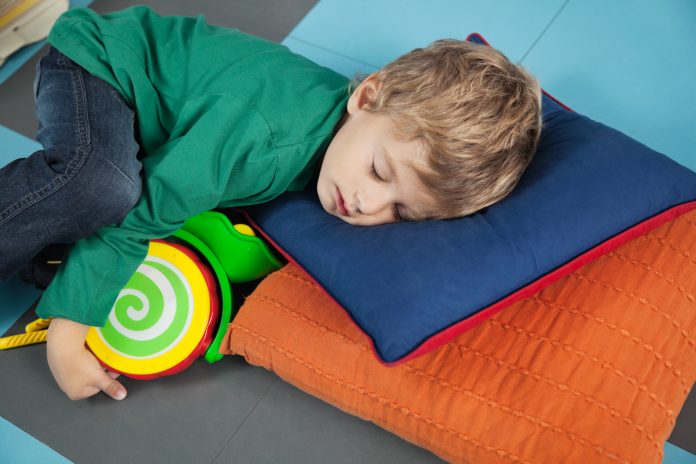According to new research, early literacy skills in children aged between four and five can be boosted by daytime naps
Conducted by researchers at the Macquarie University in Australia, the University of Oxford, the University of York and the University of Sheffield, the study investigated whether daytime napping influenced preschool children’s ability to learn and retain letter sounds and transfer this knowledge into the recognition of printed letters and words.
Published in Child Development, the study has been able to provide initial evidence that daytime naps could be beneficial for preschool children’s learning of literacy skills.
“Having a nap after learning might facilitate the capacity to utilize newly learned information in a new task,” said Hua-Chen Wang, Lecturer in the School of Education at Macquarie University. “We found a positive nap effect on children’s learning of letter-sound mappings, and in particular, using that knowledge to read unfamiliar words.”
“We found a positive nap effect on children’s learning of letter-sound mappings, and in particular, using that knowledge to read unfamiliar words.”
Studying the benefits of Naptime
By looking at the sleeping and learning patterns of thirty-two children from ages three to five in Sydney, Australia, each child participated in seven sessions over two to four weeks which included the following:
- Pre-test: To establish baseline levels of letter-sound knowledge.
- Letter-sound mapping training: Held a week apart under both “nap” and “no-nap conditions.”
- Post-tests: To assess learning once after a nap and once after a period of wakefulness. To examine whether any effect of nap on learning was maintained, knowledge was also reassessed one day later. Each session assessed letter-sound mappings and using explicit learning (e.g., “Which sound does the letter C make?”) and knowledge generalisation tasks (e.g., “Here’s Tav and Cav, which one is /kav/?”).
Naptime and letter-sound skills
As predicted, the findings showed that napping did appear to positively affect performance on the knowledge transfer test, along with this the nap benefit was maintained the following day.
Due to the study being undertaken at day-care centres rather than a laboratory for the children’s comfort, researchers acknowledged there were factors they were unable to monitor. Monitoring REM – rapid eye movement, and how it related to sleep benefits would be an important and insightful direction for future research to take.
The authors also note that since the nap effect was only found in generalising letter-sound knowledge to recognising printed words, but not on the explicit learning measures, future research on this topic with a larger sample size is recommended.











